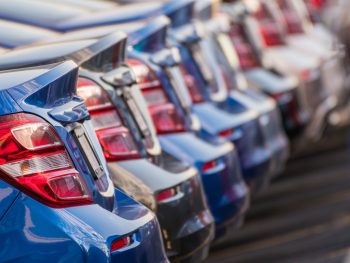Quarter of fleets predict growth, Arval study reveals
More than a quarter of car and van fleets predict growth within the next three years, according to new research from Arval.

One in four (28%) respondents said they expect their vehicle numbers to rise
Overall, 28% of respondents for the 2025 Arval Mobility Observatory Fleet and Mobility Barometer said they expect their vehicle numbers to rise; down from the 38% reported in 2024. But 65% say the situation will be stable and just 6% predict a decrease.
John Peters, head of Arval Mobility Observatory in the UK, said the figures reflect some concerns about the general strength of the economy but added that it was still a positive outlook and that the potential for contraction was seen to be very limited.
The results also come out slightly better than the international position, which shows 24% growth and 7% contraction for the European average, and 27% growth and 7% contraction globally.
“It seems that UK fleets are feeling slightly more optimistic than their counterparts overseas,” Peters went on.
The UK findings for cars alone are more wide-ranging than combined cars and vans with a 34% growth and a 12% decrease. These are more extreme than the European (27% growth and 8% decrease) and global figures (29% and 8%) and perhaps suggest there is both more optimism and pessimism among UK car operators.
The research also shows slight variations when it comes to different business sizes. The largest companies are more optimistic, foreseeing a 30% growth and 3% contraction, along with the smallest, which predict 29% growth and 6% contraction, compared to medium-sized fleets at 26% growth and 8% contraction.
Looking at specific factors behind why UK fleets expect to see expansion, by far the most popular at 78% is that their company is growing or planning new activities. This is a slight fall from 81% last year, perhaps again reflecting the more cautious economic outlook.
However, it is noteworthy that 47% see fleet vehicles as a key employee attraction and retention tool, up from 38% last year and 28% in 2023.

John Peters, head of Arval Mobility Observatory in the UK
Peters said: “These are strong increases and show a growing awareness of the role of the company car in human resources terms at a time when finding and keeping the best people for your business remains a challenge.”
The data also shows growth in the percentages for those who intend to propose vehicles to employees with no current company car eligibility, such as salary sacrifice arrangements (43%, up from 37%), and car sharing (43%, up from 35%).
“Again, this is suggestive of an increased role for the car as a benefit and probably linked to higher awareness and adoption of salary sacrifice initiatives.”
In the Arval Mobility Observatory Barometer research, small companies are classed as those with 1-99 employees, medium companies with 100-999 employees and large companies with 1,000 employees or more.
In the next three years, do you think that the total number of vehicles in your company will increase, decrease, or remain the same?
| Cars and vans | UK total % | Small companies | Medium companies | Large companies |
| Increase | 28 | 29 | 26 | 30 |
| Remain stable | 65 | 63 | 66 | 67 |
| Decrease | 6 | 6 | 8 | 3 |
| Cars and vans | UK total % | Europe | Global |
| Increase | 28 | 24 | 27 |
| Remain stable | 65 | 67 | 64 |
| Decrease | 6 | 7 | 7 |
| Cars | UK total % | Europe | Global |
| Increase | 34 | 27 | 29 |
| Remain stable | 54 | 63 | 60 |
| Decrease | 12 | 8 | 8 |
Why do you think the number of vehicles in your fleet will increase?
| The company is growing | 78% |
| Because of HR-related needs | 47% |
| We plan to offer vehicles to employees without a company car | 43% |
| We plan to propose car sharing to employees | 43% |
| Because of tax decreases | 12% |
















Leave a comment